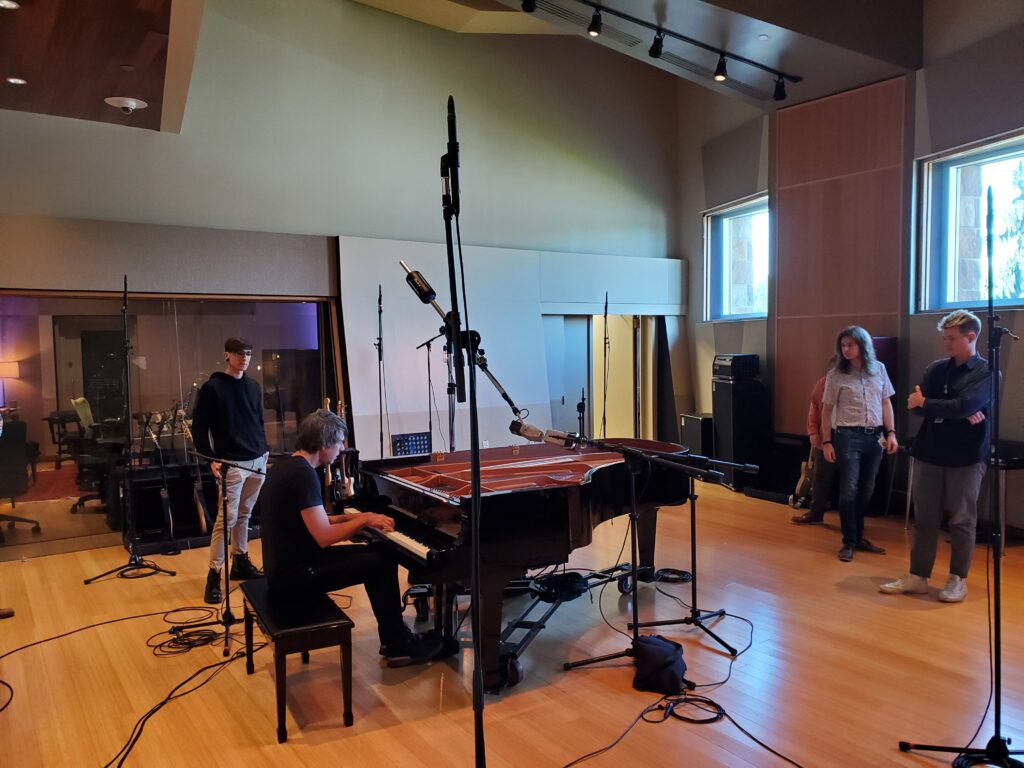Brand’s 4006 Omnidirectional Condenser Mic Offers Balance and Clarity for Recording Engineer Duo George and Geoff Hazelrigg
DOYLESTOWN, PENNSYLVANIA ― Having grown up as musicians, it’s no wonder that George and Geoff Hazelrigg fully immersed themselves in the industry and every new opportunity it provides. Between being two-thirds of the Hazelrigg Brothers jazz trio, manufacturing the D.W. Fearn line of circuits and co-founding Hazelrigg Industries, the duo is familiar with every step of the musical process: from creation to production to performance. With 30 years of production experience and 15 years of high-definition recording knowledge under their belts, the Hazelrigg brothers are now tackling the newest force to take the music world by storm―immersive audio recording.

For these recording projects, the duo relies on DPA Microphones’ 4006A Omnidirectional Condenser Microphones and accompanying nose cones. “These mics are just so quiet,” explains Geoff. “When we record in DSD, an extremely high-detailed recording format, the DPAs are so quiet and capture the total dynamic. All the little nuances of the room are picked up without having excess noise getting in the way of anything.” George agrees, adding, “the nose cones make the mics absolutely flat from top to bottom. There are no hotspots anywhere in any frequency range. These mics are sort of magical.”
When it comes to tackling an immersive project, George says, “the entire industry is thinking about how to remix tracks to fit an immersive format, but we start from the ground up and build tracks specifically for immersive. The 4006s are the standard of excellence for this.” The duo has implemented this concept for their recent co-production of LA-artist Tyler Smith’s new record. Produced in collaboration with Sweetwater Studios, George and Geoff worked alongside the iconic Mixing Engineer Mike Miller and Sweetwater Engineer Shawn Dealey.
“We hung six 4006s in the room ― corresponding with the right and left fronts, sides and rears ― to create a very realistic image,” George continues. “We even took the mics into different acoustic spaces and put single tracks through a speaker to capture the room reverb. This way, we weren’t relying on DSP reverb, but rather real acoustic spaces picked up by the DPAs.”
George also notes on the importance of audio quality in spatial audio as compared to in stereo. “In stereo, you can jigsaw puzzle things together if you’re working on a dense pop mix, but there’s no place to hide with spatial audio,” he explains. “The DPAs allowed us to record without phasing or sorting. They were easy and just worked. They also complement the close-source ribbon and tube mics that we use extremely well. The 4006s are just a higher quality. They’re more detailed and they offer a cleaner, quieter and better balance.”
The duo plans to continue implementing the 4006s into future immersive projects, including the Hazelrigg Brothers’ newest album set to release this spring. “When you’re working in immersive, you can’t afford to go in and EQ or clean things up,” Geoff says. “The 4006s require absolutely no processing on the back end ― there’s no distortion, there’s head room for days and there’s no artifacts that come off it. We honestly believe that the 4006 is the best microphone for the job.”
